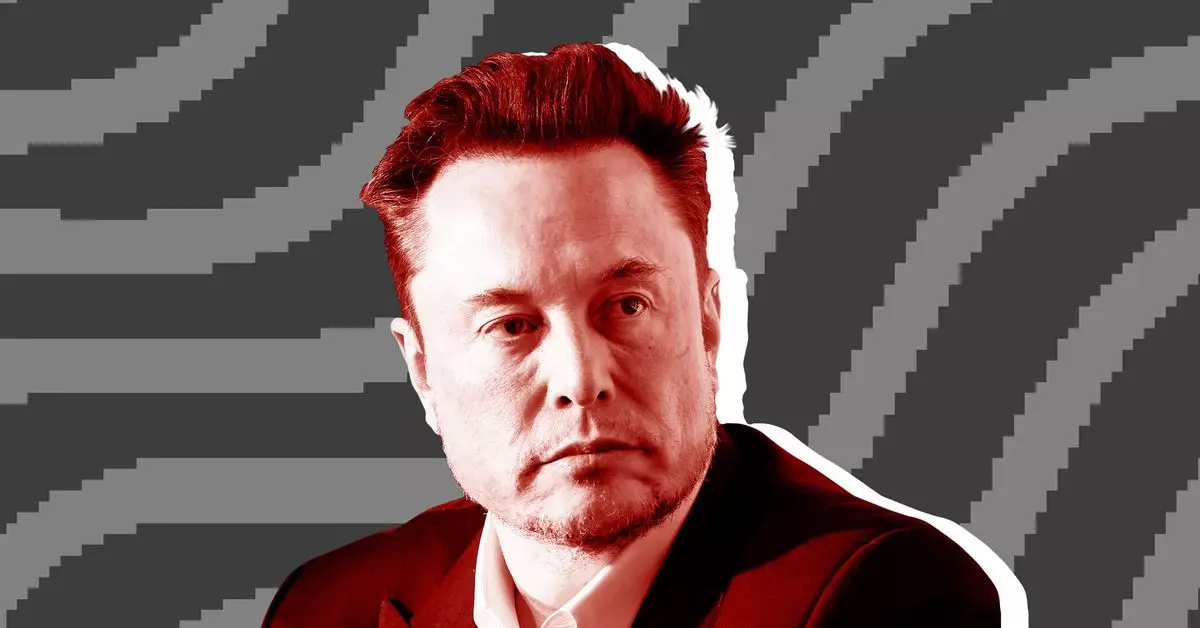In a bold move emblematic of modern governance’s melding with high-profile tech influence, President-elect Donald Trump has appointed prominent figures Elon Musk and Vivek Ramaswamy to spearhead the newly minted Department of Government Efficiency (DOGE). This unconventional choice highlights a willingness to disrupt traditional political paradigms, leveraging the innovative mindset associated with Silicon Valley to tackle long-standing issues in governmental inefficiency. As we explore this appointment, it is crucial to critically analyze the implications, challenges, and potential trajectories of this audacious initiative.
The fundamental mission of DOGE is to transform the functioning of government by “dismantling bureaucracy,” eliminating superfluous regulations, and cutting wasteful spending. This vision is certainly ambitious, promising a radical restructuring of federal agencies to foster a more streamlined and entrepreneurial approach to governance. Both Musk, known for his revolutionary ideas in technology and space exploration, and Ramaswamy, a burgeoning political figure with a business background, are expected to bring unprecedented perspectives to governmental operations.
While the concept is inspiring, it also raises questions about practicality. Musk’s previous statements indicate aspirations of cutting expenditures by monumental figures—up to $2 trillion—which many experts have deemed unrealistic without fundamentally overhauling essential services, such as defense and Social Security. The challenge lies in marrying idealistic goals with the stark realities of governmental functions and the potential backlash from a populace reliant on these services.
Operational Dynamics: What Does ‘Outside of Government’ Mean?
A key element of Trump’s proposal is that DOGE will operate “outside of Government,” which raises critical questions about accountability and governance. This approach suggests a desire for agility and creative freedom typically constrained within traditional bureaucratic frameworks. However, it is pertinent to inquire how these leaders will ensure that their operations remain transparent and accountable to the public they serve.
The collaboration between DOGE and entities such as the White House and the Office of Management and Budget points toward an integration of traditional political structures with entrepreneurial strategies. This interaction could foster innovative solutions to long-standing inefficiencies. Yet, it is essential to critically assess the risk of creating a governing body that might circumvent established checks and balances, potentially leading to abuses of power or misguided priorities.
The announcement has generated a wave of media attention and public discourse, not least due to Musk’s significant following and his strategic involvement in political fundraising. Following the news, the cryptocurrency Dogecoin saw a resurgence in value, demonstrating how intertwined politics and technology can now influence financial markets. This phenomenon raises questions about the ethical implications of such financial maneuvers: is the government direction being influenced more by market whims and speculation than by sound policy?
Moreover, public sentiment toward the DOGE initiative is mixed. While some view it as a much-needed shake-up of a stagnant system, others express skepticism about the effectiveness of tech entrepreneurs in political leadership. The complexity of public opinion reflects broader societal concerns regarding who holds power and how it is wielded in modern democracies.
As Musk and Ramaswamy embark on this ambitious journey with a deadline set for July 4, 2026, the implications of their work will resonate far beyond governmental efficiency. The initiative could serve as a litmus test for the future of governance in an age increasingly dominated by technology and entrepreneurial spirit. However, history shows that considerable reforms often face substantial resistance and can devolve into bureaucratic inertia, regardless of initial ambitions.
While the DOGE initiative represents an exhilarating attempt to reimagine government efficiency, it is essential to approach its promise with caution and critical examination. The success of such an initiative hinges not only on the vision of its leaders but also on the holistic engagement of the populace and the ongoing dialogue surrounding the role of technology in public administration. As the nation celebrates its 250th Anniversary of Independence, the challenge remains: can DOGE truly manifest a government that is leaner, more efficient, and ultimately more accountable to its citizens? Only time will tell.

